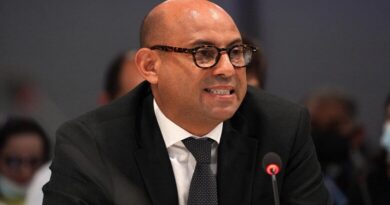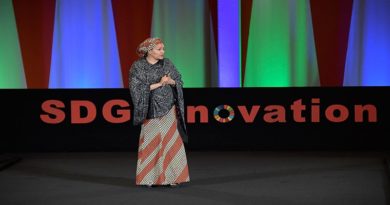‘We organise World Climate simulation to build capacity in Africa’
Ahead of the fast approaching twenty-second United Nations Framework Convention on Climate Change/ Conference of Parties (UNFCCC/ COP22) taking place in Marrakech, Morocco in November and the need to build the capacity in Africa on the dynamics of climate science and policy so as to enable negotiators to make science-based decisions, a series of climate simulation trainings were recently held in Lagos and the capital city of Nigeria, Abuja.
The training programme was an initiative of Climate Interactive, Mohammed VI Polytechnic University (UM6P) in Morocco and other partners across Africa, aimed at enhancing the engagement of different stakeholders in the forth coming conference. Through World Climate Simulation events, Climate Interactive builds the capacity of African climate leaders by supporting them to use science-based decision-making tools.
According to the organisers, ‘Our World Climate simulation events put people into the role of UN climate negotiators for a few hours and draw on the fields of system dynamics and organizational learning to help people understand the big picture and see what works to address climate challenges. We are partnering with likeminded institutions across Africa to offer these simulation events and online webinars to equip different stakeholders and people interested in becoming World Climate facilitators.’
To fulfil this, Climate Interactive recently hosted two events in Nigeria on 19-20th September in collaboration with the University of Lagos Energy Centre and Climate Wednesday and another one 22-23rd September in Abuja in collaboration with the Energy Commission of Nigeria.
The two events, facilitated by Dr. Travis Franck and Dr. Grace Mwaura drew participants from the academia, business sector, and civil society among others.
Mwaura told Ecogreen News that the World Climate simulations in Africa was organised as part of a larger effort to build the capacity in Africa on the dynamics of climate science and policy.
She went further, ‘We organize World Climate simulations in Africa as part of a larger effort to build the capacity in Africa on the dynamics of climate science and policy. To help people better understand the how challenges of climate change are complex, but also related to other issues we are currently addressing in our countries.’
Information obtained from the Climate Interactive web page revealed that over 15,000 people in over 50 countries have participated in World Climate simulations events led by facilitators from diverse sectors, including top business leaders government officials, students and youth organisations.
The World Climate Simulation enables participants to experience what it is like to be a negotiator at the UN climate change negotiations. It was developed by Climate Interactive, MIT Sloan School of Management, and the UML Climate Change Initiative. During the simulation, World Climate participants become negotiators for different regions of the world and work to negotiate a global climate agreement. As they negotiate, participants learn about the interconnectedness of carbon emission trends, global power dynamics, and what it takes to prevent catastrophic climate change.
The two-week annual UN climate talks (COP22) will take place in Marrakech, Morocco in November.
By Kayode Aboyeji




